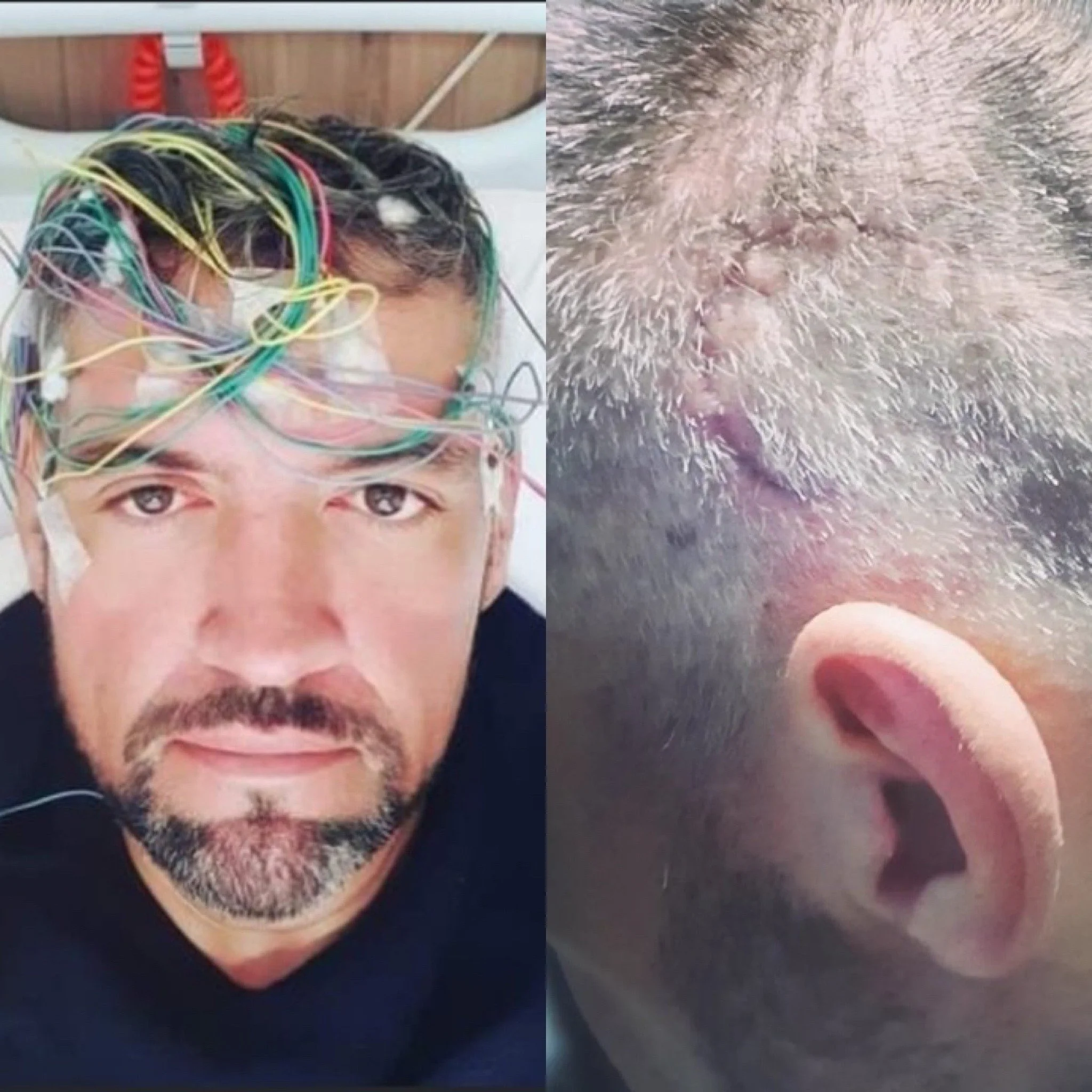Exclusive: First South African rugby player breaks silence on early onset dementia diagnosis
This article is written by Progressive Rugby
Former Blue Bulls lock/backrower Kiebie Smith has become the first South African rugby player to go public with a diagnosis of early onset dementia and probable CTE.
Smith, 43, played as a lock/backrow for Blue Bulls at U17 Youth, U18 Schools, U19 and U21 sides alongside future Springboks, and was part of wider South African U21 squad in 2001.
After having to stop playing aged 25 due to neck trauma, Smith has suffered two strokes, suicidal thoughts, mood swings, anxiety, crippling migraines, blackouts and balance issues.
Worsening short-term memory loss has seen Smith having to constantly write notes to remind him of his commitments and he now has to use google maps to travel around his community despite having travelled the same roads thousands of times before.
Smith recently contacted South Africa Rugby after the governing body’s medical manager Clint Readhead revealed that South Africa had no known cases of probable early onset dementia and CTE, but appealed for players who were suffering to get in touch.
Smith says he has no intention of taking legal action against South Africa Rugby but is passionate about helping support other players who are suffering and educating current players about how to look after themselves as they play the game they and he dearly love.
“I grew up in a pram with a rugby ball, was a ball boy with my brother at Loftus Versfield,” Smith told Progressive Rugby, proudly wearing his Springbok jersey for #BokFriday.
“It was devastating for me to have to stop playing at 25, the dream was over. My head, neck and shoulders, knees and ankles were shattered and there is no question that I went off the rails.”
During his playing career, Smith says he believe he suffered in excess of 30 clear concussions, as well as thousands of sub concussive blows.
“Concussion just wasn’t a thing in the rural community where I grew up. If you could stand on your own two feet, you played. Even if you were knocked out of felt sick or dizzy you just went home and rested and knew you’d be back on Monday to train,” he said.
Within a year of his rugby playing career being over, Smith suffered his first stroke and experienced partial paralysis. Unable to understand his emotions he turned to alcohol, which alongside the drugs he was prescribed for a misdiagnosis of bipolar, his weight ballooned above 200 kilos (31st).
“I’d get crippling migraines and fly into a rage for no reason. I’d spend my time in the pub drinking because I couldn’t sleep and it ultimately led to the collapse of my first marriage,” Smith said.
“I think it was difficult for people because I was an outgoing person, but on the inside I felt like I was dying. In 2017 I had a second stroke and ended up in ICU and doctors said if I carried on like I was I had perhaps 3 to5 years to live.”
After remarrying in 2010, it was ultimately it was his love for his 11-year-old daughter who has proved to be the driver for changing his erratic lifestyle, and thanks to his faith, new diet, occupational therapy and exercise Smith now weighs 102kg and has been sober for almost a year.
But in June and July 2023 his problems with balance saw him suffer three concussions over a three-week period, and his final one caused a seizure that led to him being unable to talk for a week. After extensive tests, Smith was diagnosed with early onset dementia and hydrocephalus (fluid on the brain) for which doctors had to carry out brain surgery in September.
Smith said: “What has really helped me is me accepting this situation and learning to take each day as it comes but the are all different. Sometimes I’ll be fine, and then brain fatigue will set in and hit me hard, other days will differ. It’s about learning to manage my limits.
He is aware that being the first South African will bring with it criticism, as it has done for other players including Steve Thompson, Alix Popham and Carl Hayman.
“My wife and daughter are wonderful support but I’m aware of the likely backlash,” Smith said.
“Ultimately, us men aren’t very good about talking about mental health, but I know others who are suffering, and I have no doubt that this will escalate in South Africa.
“I know I’m doing the right thing. Both to support others suffering now, and to help educate those playing now and in the future.”
Professor John Fairclough, of Progressive Rugby, said: “Every diagnosis we hear of is desperately sad. We salute Kiebie for having the bravery to come forward and we hope his efforts gives others who are struggling the strength they need to ask for support they need. Meanwhile we will continue to work to ensure lessons are learnt and that those playing this great game now and in the future are better protected from neurodegenerative disease.”
“I know there are some players who are currently battling with head injuries after rugby. They are still under the impression they did it to themselves – they are still in that space.”


